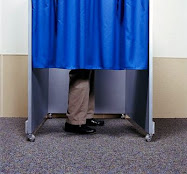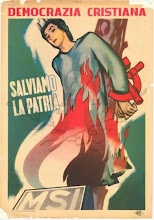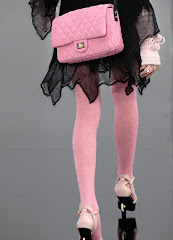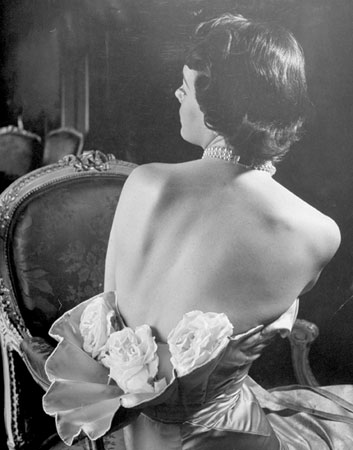
By Michael A. Fletcher
Washington Post Staff Writer
Monday, January 19, 2009; A01
Throughout his barrier-breaking presidential campaign, Barack Obama avoided calling direct attention to race, long a divisive force in electoral politics. But now, as he stands on the verge of becoming the nation's first African American president, Obama is talking more about how his racial identity can unify and transform the country.
"There is an entire generation that will grow up taking for granted that the highest office in the land is filled by an African American," Obama said in an interview last week with The Washington Post. "I mean, that's a radical thing. It changes how black children look at themselves. It also changes how white children look at black children. And I wouldn't underestimate the force of that."
Beyond the symbolism of his historic achievement, Obama said, he hopes to use his presidency as an example of how people can bridge differences -- racial and otherwise. "What I hope to model is a way of interacting with people who aren't like you and don't agree with you that changes the temper of our politics," he said. "And then part of that changes how we think about moving forward on race relations. Race relations becomes a subset of a larger problem in our society, which is we have a diverse, complicated society where people have a lot of different viewpoints."
When Obama is sworn in tomorrow, many Americans will celebrate a once-unthinkable milestone achieved by a politician whose own mixed racial heritage -- he is the product of a black Kenyan father and a white American mother -- raised piercing questions of identity as he began his quest for the presidency. Is he black enough? some asked in his campaign's early days. Did his upbringing in Hawaii and Indonesia make him too different to fully appreciate America's painful struggle for civil rights and racial progress that laid the foundation for his ascendancy?
Obama has confronted questions about his racial identity since his earliest days in politics. And now he is confronting new questions, as Americans of differing backgrounds are eager to claim him. Is he the first black president or the first biracial president? Why should the white part of his lineage give way to the black part?
"We did not elect our first African American president. Rather, we elected our first biracial president," Douglas Snyder of Bowie wrote in a letter published Saturday in The Post.
For his part, Obama is unambiguous in calling himself an African American, the identity he embraced early on.
Though he has always honored his white mother and grandparents, the young Obama read African American writers and studied the mien of the black guys he encountered on the basketball court. He was intrigued by the older African American men who played cards with his grandfather. He imitated the dance moves he saw on the television show "Soul Train," and he tried to curse like the late comedian Richard Pryor.
Obama's style, his habits, his sensibilities, some scholars say, will create a new White House iconography.
"The very fact that he is black means that we're going to be transforming the aesthetic of the American democracy," said Peniel E. Joseph, a presidential historian and professor of African American studies at Brandeis University. "Virtually every single thing that he will do from this point on is uncharted territory. His choice of a church. The State of the Union. News conferences. Those all become new."
Black-oriented Ebony magazine used a cover photo of Obama emerging from his SUV in a dark suit and black shades to celebrate him as an exemplar of "black cool." His fondness for pickup basketball is well chronicled. And even his friends have commented on how his loping stride gave him a look of confidence as the cameras caught him walking the White House colonnade during his first post-election visit with President Bush.
Many African Americans would find familiar Obama's short exchange during a recent visit with D.C. Mayor Adrian M. Fenty to Ben's Chili Bowl, a locally renowned eatery. Obama paid the tab with a $20 bill. When the counter attendant asked if he wanted change, Obama responded: "No, we're straight." We're straight is a colloquialism uttered every day, but not normally by occupants of the Oval Office.
"He's a brother," said Obama's longtime Chicago barber, Zariff (who goes by one name). "His actions speak more than anything. He still has the same demeanor that he has always had."
Even Obama's decision to use his full name -- Barack Hussein Obama II -- while taking the oath of office signals something new for the presidency, even though Obama has explained that he is simply following tradition, not trying to make a statement. For all of that, being African American has been as much a choice as a birthright for Obama. As a young man whom everyone knew as "Barry," he was acutely aware of his unusual heritage, and he yearned for a singular identity. For much of his adolescence living with his white grandparents in Hawaii, he was "engaged in a fitful interior struggle," Obama wrote in his first book, "Dreams From My Father."
"I was trying to raise myself as a black man in America, and beyond the given of my appearance, no one around me seemed to know exactly what that meant."
Charles J. Ogletree Jr., a Harvard University professor who mentored Obama in law school, said his protege "has always confidently declared himself an African American. He is the last to say we are in a post-racial period. He has reminded people that we still have to think about race and address race issues."
When he takes office, Obama will be leading a nation that has undergone seismic changes as it has steered away from its tortured racial past. When Hiram Revels, the first African American to serve in Congress, arrived in the Capitol from Mississippi to fill his Senate seat in February 1870, Democrats argued that he was unqualified.
Revels, who was biracial, had become a citizen only with the 1868 ratification of the 14th Amendment, his opponents argued, leaving him short of the constitutionally required nine years of citizenship. Revels was eventually seated, but only after a three-day debate that lingered on the ugly question of whether black men were equipped to function at the highest levels of government.
Since then, the country has slowly relaxed its notions of race. For generations, American society defined individuals as black if they had even "one drop" of black blood, and the government took close stock of someone's black heritage. In 1850 came "mulatto," followed two decades later by "octoroon" and "quadroon." Since 1977, the federal government has used the same racial categories on census and other forms: black, white, American Indian or Alaskan Native, and Asian or Pacific Islander.
Only in the most recent census, in 2000, were Americans allowed to check more than one box for race. About 6.83 million people, or 2.4 percent of the nation's population, did so.
During the campaign, some black leaders grumbled that Obama was not vocal enough in articulating an African American agenda. But many of the initiatives Obama has championed -- creation of construction and manufacturing jobs, middle-class tax breaks, expansion of health care, increased funding for education -- would disproportionately benefit working-class people, many of them black.
"I think a lot of the biggest challenges in terms of the African American community or Latino community have to do with economics," Obama said in the Post interview. "And if we get our economics right, then in my mind that is always a mechanism to improve race relations."
At the same time, Obama has been able to use the reality of being biracial as a unifying fact, something he has been able to do for much of his political career.
"I think he just looks at people who would be divided by race and naturally sees what they have in common," said Michael Strautmanis, who met Obama two decades ago, worked with him on his Senate staff and will be joining him as a White House aide. "He is so comfortable in his own skin that he makes you comfortable in your skin, so you stop thinking about the things that would divide you."
State Sen. Rickey Hendon (D), who served with Obama in the Illinois legislature and early on needled Obama about his racial bona fides, said he has learned to appreciate Obama's way of dealing with race. Hendon, who recently authored a book titled "Black Enough, White Enough: The Obama Dilemma," recalled Obama's posture as he helped steer a racial-profiling bill through the state Senate.
While Hendon and other black legislators offered personal testimony about being stopped by police for "driving while black," Obama did not. Hendon said Obama made it clear that he never had that experience, striking a less adversarial posture that Hendon suspects helped make the legislation more palatable to some opponents.
"It is the beauty of Barack Obama," said Hendon, who supported Obama in the presidential race. "He is a good compromise person, probably because of his heritage."
His ability to reach out to people with conflicting views is something Obama has continued to trade on in the days leading to his historic inauguration. He has met with conservative columnists and with liberal ones. He has engaged Republican lawmakers and his fellow Democrats. He invited evangelical pastor Rick Warren, an opponent of same-sex marriage, to deliver his inaugural invocation. Then he asked Episcopal Bishop V. Gene Robinson, who is gay, to give the opening prayer at yesterday's concert at the Lincoln Memorial.
"I think what you'll see in the White House will reflect Barack's view of the world," said Obama's longtime friend Marty Nesbitt. "It will be open and accommodating, and it will reflect what America looks like, which is broad and diverse. That is not because of some overt strategy, but that is because of who Barack is."



















